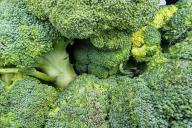When stressed, people can develop different relationships with food.
While it's usually based on their personality and experiences, it can also be affected by the type and reason of their stress.
Here are a few explanations about how it works.
Overeating
Emotional Eating Patterns
Stress often triggers emotional eating, where individuals use food as a way to cope with their emotions.
Comfort foods, which are often high in sugars and fats, may be sought for their soothing effect during stressful times.

Hormonal Influence
Stress activates the body's "fight or flight" response, releasing hormones like cortisol.
Elevated cortisol levels can increase appetite, especially for snacks rich in carbohydrates.
Brain Response
Certain foods, particularly those with sugar and fat, can activate reward centers in the brain, providing a temporary mood boost.
Not Eating Enough
Digestive Impact
Stress can impact the digestive system, leading to a loss of appetite.
The body may prioritize resources away from digestion to deal with the stressor.
Energy Redistribution
The body might redirect energy away from non-essential functions like digestion to focus on the perceived threat, leading to reduced interest in food.
Stress-Induced Nausea
Some individuals experience nausea or stomach discomfort when stressed, contributing to a lack of desire to eat.
Individual Variations
Personal Coping Mechanisms
Each person may have unique coping mechanisms.
While some turn to food, others may find their appetite diminishes.
Personal history, cultural influences, and learned behaviors can also shape how individuals respond to stress through eating.
Long-Term Impact
Weight Management
Chronic stress and associated eating patterns can contribute to long-term weight management challenges.
Nutrient Deficiency
Inadequate food intake during periods of stress may lead to nutrient deficiencies, affecting overall health.
Previously, we talked about perfect cheesecake ideas.









